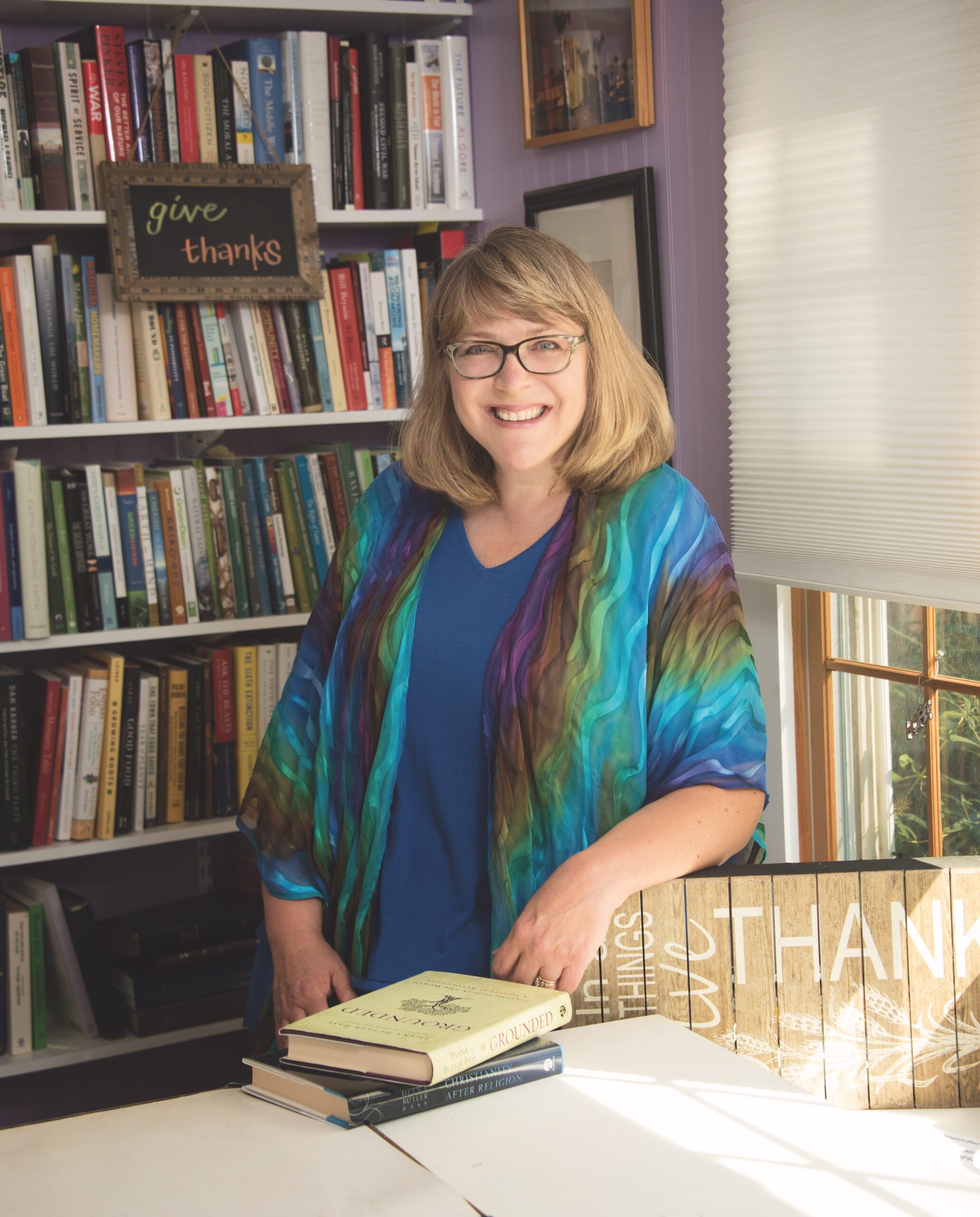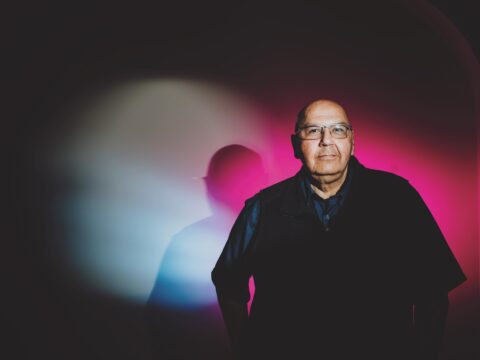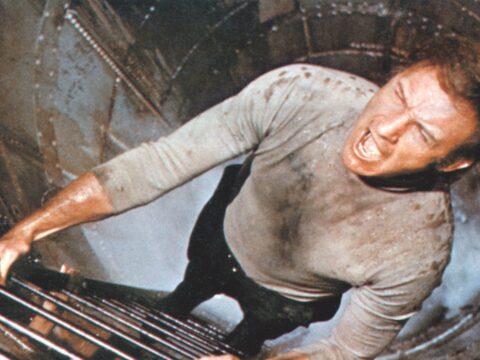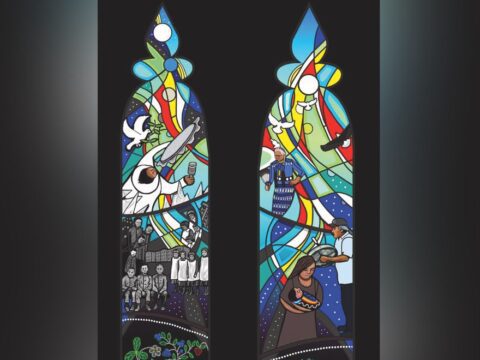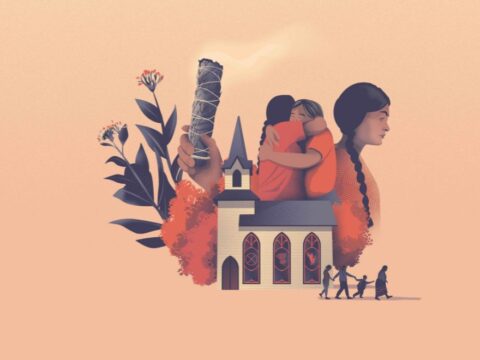Diana Butler Bass is one of the world’s best-known commentators on Christianity. Last summer, the American author and historian had a sermon that went viral. Within the first week of Bass posting her 40-minute talk to her newsletter, The Cottage, the clip had been
shared more than 200,000 times by listeners around the globe.
The subject of her sermon was Mary Magdalene and research being done by biblical scholar Elizabeth Schrader Polczer on Magdalene’s role in the Gospels. Schrader Polczer, who is friends with Bass, recently discovered a change in the text of the Gospel of John made by a scribe in the early 3rd century AD. In the story of Lazarus, there are two sisters, Mary and Martha — Schrader Polczer, however, noticed that in the oldest copy of the Gospel, there was only one sister, Mary, and this scribe had later split her role and given half of her lines to a new sister, Martha. Based on this change and other related information, Schrader Polczer theorizes that Mary, Lazarus’s sister, might actually be Mary Magdalene, and that she may have had a much larger role in Jesus’s life than was previously understood. Anne Thériault spoke to Bass, who lives in Washington, D.C., on video chat.
Anne Thériault: What was your understanding of Mary Magdalene’s story when you were growing up?
Diana Butler Bass: In the 1960s and 1970s, the main sort of picture of Mary Magdalene that was being drawn by pretty much any church, whether that was Catholic, Orthodox, Methodist or evangelical, was the same. Mary Magdalene was the fallen woman who somehow came into Jesus’s orbit. Mostly the idea was that Jesus had healed her — or forgiven her sins — and that out of her sense of gratitude she became a follower of Jesus. I really never thought of her as being particularly important, which is odd because she shows up in all of the Resurrection narratives, so one would think that that would have brought our attention. But she always seemed like a minor character — a woman who became a disciple, and that was basically all we thought about her. Except for the story, of course, about her somehow being a prostitute who is redeemed by Jesus.
AT: How did that perspective shift as you got older?
DBB: As I went through seminary and graduate schools, I became much more interested in feminist theology. Mary Magdalene shows up in some of those biblical interpretations, so I came to see her as a more important character, and certainly had the idea about her being the apostle to the apostles. Mary Magdalene is one of the first witnesses to the Resurrection. She’s the one who goes back and tells all the guys, “Hey, look, this incredible thing happened,” and they don’t seem to believe her, which is a pretty interesting narrative for feminist theology to be playing with. Because [what woman] hasn’t had that experience where you are the first one to realize something important, you go back and tell the guys and then they look at you like, “What are you talking about? We’ve got to go see that for ourselves.” She had taken on a feminist importance to me by midlife.
Want to hear more great feminist theology? Check out the trailer for our upcoming podcast, And Also Some Women. Stay tuned for the first episodes next month!
AT: The moment I became radicalized was reading Jane Schaberg’s The Resurrection of Mary Magdalene. Schaberg writes that Mary is the mad woman in Christianity’s attic. I remember thinking, “What does that mean?”
DBB: I like that idea of her. It’s a little bit like the story of [Bertha Mason in] Jane Eyre. There’s this major figure that’s locked up in the attic, and you don’t even know she’s there until the whole house burns down. To take that image of the madwoman in the attic — and to think about it in terms of meaningful literature in the writing of women — is really powerful. It makes you wonder if that isn’t the intention of Jane Eyre — to make us think of those kinds of characters that we lock away.
AT: You said that when you first met Elizabeth Schrader Polczer for coffee and she explained her research, you had a very visceral reaction to it — in fact, you couldn’t stop crying.
DBB: My emotional response came from realizing, in some sense, that I wasn’t alone. I had thought for a long time, without proof, that there was more to this story, and here was this woman 20 years younger than myself telling me that there’s actual textual, historical, archeological evidence that something has happened to this story of Mary Magdalene, something that has obscured the power of the story from our view for centuries. To have this incredible scholar say, “This is true; it is not just intuition” — that was the piece that just made my heart stop. I was so grateful to her. It was that sense of gratitude that might have been the thing that unleashed the tears. It was like getting a gift that I always wanted but never understood how much I needed. And then when she handed me that gift of interpretation, that is really what transformed the moment for me spiritually. I’ve never thought about Mary Magdalene in the same way since we had that initial coffee together.
AT: What does it mean to you that we can still be making these discoveries about the Gospels so many years later?
DBB: I was actually trained as a church historian, and so one of the things that is true from the perspective of my training is that history is about a set of facts. There are people who lived and died, there are certain events that happened and there’s a timeline of events that we can track through chronologies. But there’s another part of history as well: the idea of interpreting all of that data. When every new generation approaches that data, we come with a different set of experiences and questions, because we change through time. That’s a really significant part of what’s happening here with Mary Magdalene. The only people who looked at this story before were largely elite men, mostly from the western Christian tradition, who had particular ideas about the role of women in church and in society. They saw the story of Mary Magdalene through their lenses, prejudices and biases. Now that’s part of what is being questioned, and really being undone. For me that’s what the heartbeat of history is — to take something that is inherited and to then ask, “Well, what does all this mean now, through the experience of this wider table of people looking at this material?” History in and of itself holds the possibility for reinterpretation and readjustment. That becomes part of the excitement and the creativity of being a historian.
More on Broadview:
- Introducing Broadview’s first podcast
- Unravelling the myth of Mary Magdalene
- In books and on screen, midlife women are taking control of the story
AT: How do you hope Schrader Polczer’s discovery might shape Christianity in the years to come?
DBB: I am very committed to the idea that the Christian future is both a future that is more colourful — it is going to include people from every sort of corner of the globe — and also female. If Christianity survives as a global religion, it’s going to have to be a rainbow and it’s going to have to be male and female. That’s going to bring up a lot of really interesting questions that our trans friends are actually bringing up about the dualism of gender. And boy, I can’t wait. It’s going to be an amazing argument going forward, and I think that we’re in for some exciting moments of change.
AT: What is your life like now since that sermon?
DBB: Since I preached that sermon, I have gone nowhere where people haven’t asked me about Mary Magdalene. It’s astonishing to me. I was trained in 19th-century American religious history. I write a lot about trends for the future of faith, and here I am standing in a room full of pastors or at a retreat, and people are asking me to explain to them the textual evidence of John Chapter 11 for Mary Magdalene. I’m in my early 60s, and I have learned so much about textual criticism. I have one of the best teachers ever. Elizabeth has taught me an enormous amount about how she works in her field. For me to be able to learn that and share her passion with a waiting world that has been looking forward to hearing a better story about Mary Magdalene, the Bible and the Christian tradition — it’s been magic.
***
Anne Thériault is a freelance writer in Kingston, Ont.
This interview first appeared in Broadview’s June 2023 issue with the title “Shining a New Light.” The interview, and the related podcast And Also Some Women, were funded through a generous gift from Revs. John and Lilian Perigoe to support Broadview’s coverage of feminism and theology.

